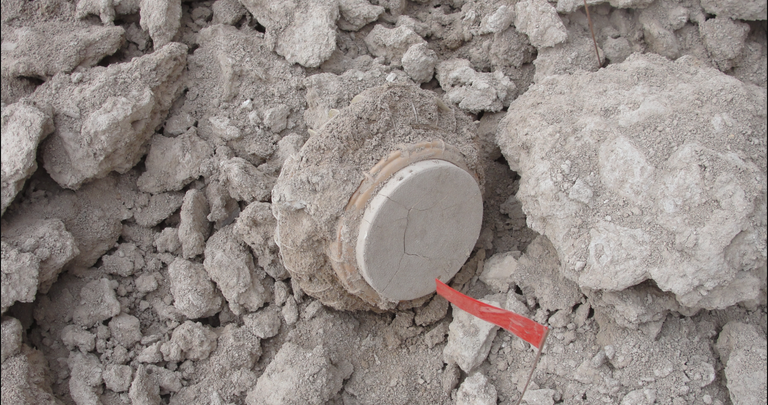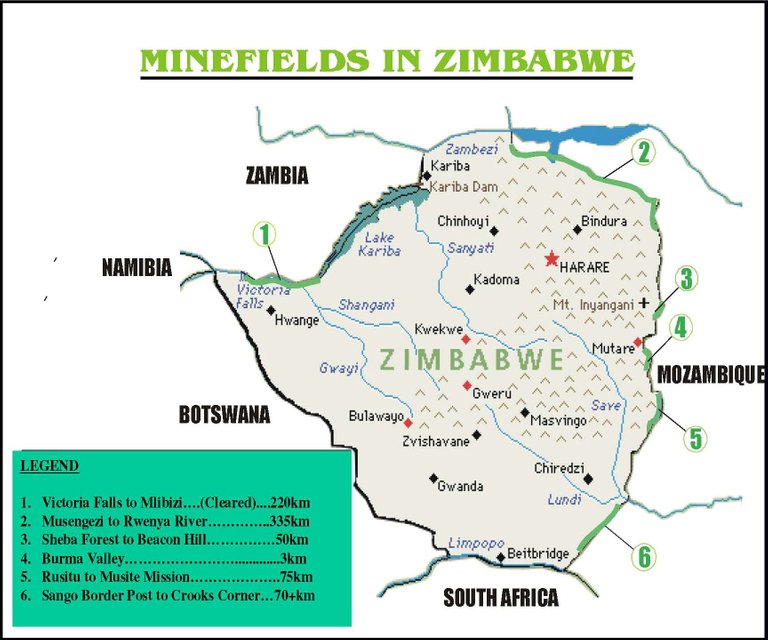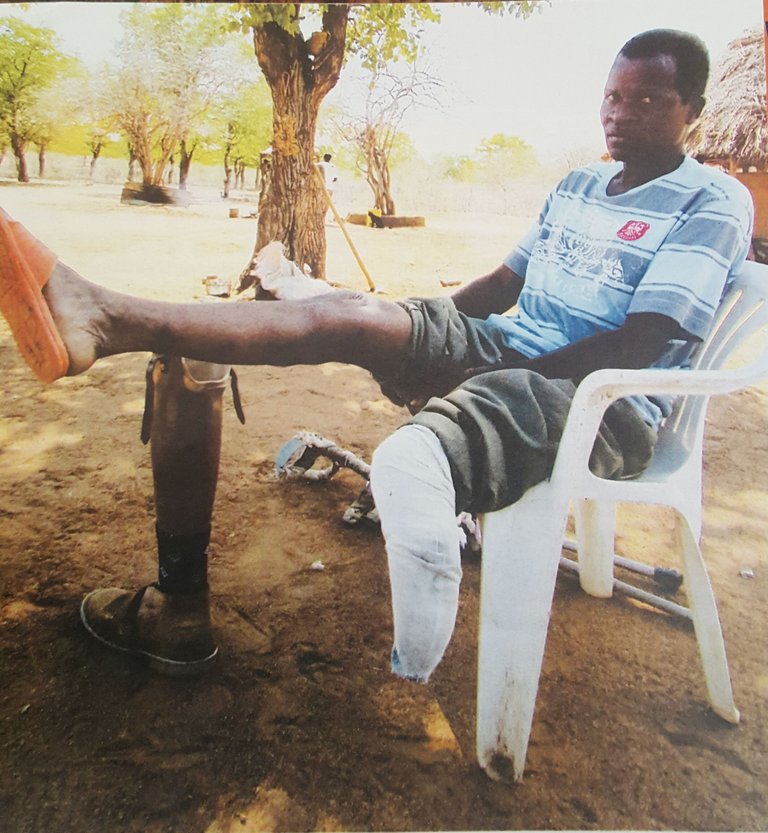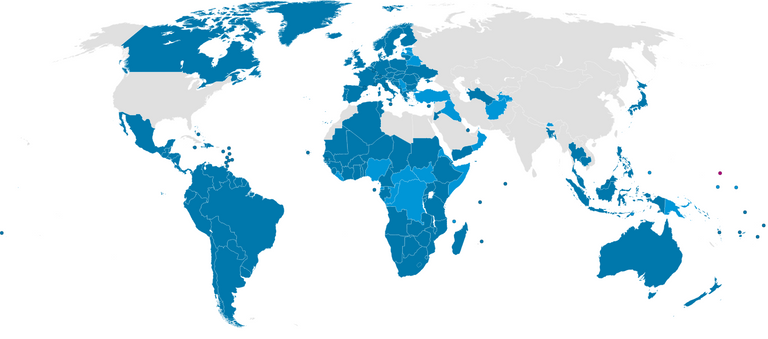@tinashe :- "I did this post sometime ago and I feel the world should know the landmine situation in Zimbabwe and how it's affecting lives.This repost is meant to be an awareness campaign on the horrors of this brutal silent killer, that is maiming innocent humans and animals years after the war of liberation struggle".
A landmine victim Hlengwani Mudzikiti (Zimbabwe)
Hlengwani Mudzikiti (56) of Dumisa area in Chiredzi South Zimbabwe could be cursing the gods after his fortunes which then appeared to be on the rise were suddenly crushed when he stepped on a landmine 6 years ago. Mudzikiti had gone to look for his stray cattle into a nearby forest, but the search changed his life forever when he lost his left leg after accidentally stepping on an anti-personnel mine.

Despite the accident occurring on one hot afternoon in 2013, memories of that day still haunt him and anger piles each time he gets up to walk. Mudzikiti leaves nothing to the imagination when he starts talking about landmines and does not mince his words.His anger and criticism of the Rhodesian forces for laying landmines in his home area drives him into tears.Fours years down the line, his wish remains to have those responsible for the landmine menace come forward and apologise.
He talked about his trials and tribulations.
"My life has become a living hell since losing his leg.The pain I have is bigger than a mountain.I had gone to the forest to look for my stray cattle and I suddenly stepped on a stump of grass only to hear a thundering and shattering sound.In a second I was down thinking I had been attacked by a cattle rustler from Mozambique. When I fell, I thought I had escaped my attacker but was surprised that I was, in fact lying down and
my left leg was missing,"Mudzikiti recalls
Mudzikiti said after initially failing to get immediate help, he was helped two days later by a group of women who had heard his faint cries for help.In a space of few minutes, the ladies managed to improvise and knit a long enough rope out of Mopani tree bark, which they threw to him to tie around the waist for them to pull him out of the mine field.At the time the ladies were fresh from attending a landmine awareness campaign in the area.

Mudzikiti says he was to be carried in a scotch cart to the Hospital, some 120km away, where his leg was immediately amputated.He was to stay in the hospital for the next three months. Upon his return from the hospital, his life took an ugly turn after his wife with whom he has three kids abandoned him to go back to her parents home.Now walking on crutches and no-longer able to do household chores, Mudzikiti turned into a wanderer going for occasional traditional beer drinking binges.
The landmine menace has caused a lot of nightmares for many in Zimbabwe and Mudzikiti's hellish experience is not an isolation.Such is life of many landmine victims who among the majority of the Zimbabweans calling for an increase of the rate at which demining operations are taking place.

Areas along the countries borders are still littered with landmines, which have restricted movement, farming and grazing among many other commercial activities. There are an estimated 3 000 000 anti-personnel landmines still dotted around the countries borders and at the current rate of demining, it will take approximately 20 years to clear all landmines according to the Zimbabwe Mine Action Center.

The use of anti-personnel mines was banned by the OTTAWA Treaty which was signed in 1996 in Canada and it stated:-
ceasing the production and development of anti-personnel mines, a party to the treaty must destroy its stockpile of anti-personnel mines within four years, although it may retain a small number for training purposes (mine-clearance, detection, etc.). Within ten years after ratifying the treaty, the country should have cleared all of its mined areas. This is a difficult task for many countries, but at the annual meetings of the States Parties they may request an extension and assistance. The treaty also calls on States Parties to provide assistance to mine-affected persons in their own country and to provide assistance to other countries in meeting their treaty obligations.
source
States that are party to the Ottawa Treaty in Blue.
Despite all these efforts, the process of clearing the mines mostly in third world countries like Zimbabwe is painstakingly slow due to a shortage of resources.This then leaves the locals in mined areas exposed to danger and fatalities are inevitable.Innocent humans are left to this silent killer that knows no friendly force or enemy but just lies silent ready to claim a victim.
LETS STOP THE USAGE OF ANTI-PERSONAL MINES AND SAVE LIVES

IF YOU FEEL THIS IS IMPORTANT PLEASE DO SHARE WITH OTHERS TO MAKE THIS CAMPAIGN A SUCCESS


Donations
BTC - 1CeT8H4TbrZAEwr9tJSK222r3agE4SfE8Q
ETH - 0xdCc6409fB1De028bdfA942e76c5C0121A550F4c7
LTC - LgTVniBDfgzeYjBVr6UpNrDxJzrkXH2Brv




